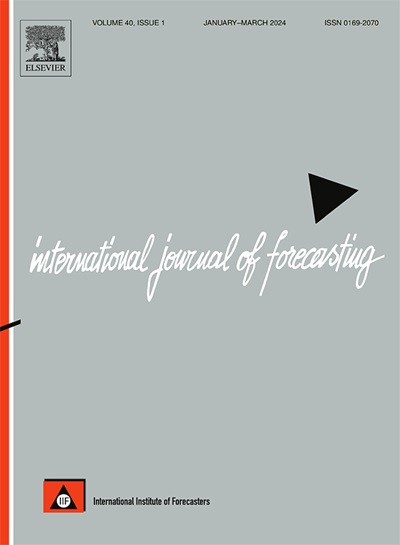用于给定违约损失预测的多视角局部加权回归
IF 7.1
2区 经济学
Q1 ECONOMICS
引用次数: 0
摘要
由于违约损失(LGD)的分布高度倾斜,且与预测因子之间存在复杂的非线性依赖关系,因此准确预测违约损失(LGD)是一项挑战。为此,我们提出了一种用于 LGD 预测的多视角局部加权回归(MVLWR)方法。为了应对 LGD 分布的复杂性,我们为每个新样本建立了一个特定的集合 LGD 预测模型,从而提供了灵活性,并放宽了对分布假设的依赖。为了处理复杂的关系,我们将多视角学习和集合学习结合起来用于 LGD 建模。具体来说,我们将原始特征分为多个互补组,为每组建立一个特定视图的局部加权模型,并汇总所有特定视图模型的输出。使用真实世界数据集进行的实证评估表明,在 LGD 预测中,所提出的方法在样本外和时间外性能方面都优于所有基准方法。我们还为利益相关者(尤其是金融机构)提供了有价值的见解和实际意义,以提高其 LGD 预测能力。本文章由计算机程序翻译,如有差异,请以英文原文为准。
Multi-view locally weighted regression for loss given default forecasting
Accurately forecasting loss given default (LGD) poses challenges, due to its highly skewed distributions and complex nonlinear dependencies with predictors. To this end, we propose a multi-view locally weighted regression (MVLWR) method for LGD forecasting. To address the complexity of LGD distributions, we build a specific ensemble LGD forecasting model tailored for each new sample, providing flexibility and relaxing reliance on distribution assumptions. To address complex relationships, we combine multi-view learning and ensemble learning for LGD modeling. Specifically, we divide original features into multiple complementary groups, build a view-specific locally weighted model for each group, and aggregate the outputs from all view-specific models. An empirical evaluation using a real-world dataset shows that the proposed method outperforms all the benchmarked methods in terms of both out-of-sample and out-of-time performance in LGD forecasting. We also provide valuable insights and practical implications for stakeholders, particularly financial institutions, to enhance their LGD forecasting capabilities.
求助全文
通过发布文献求助,成功后即可免费获取论文全文。
去求助
来源期刊

International Journal of Forecasting
Multiple-
CiteScore
17.10
自引率
11.40%
发文量
189
审稿时长
77 days
期刊介绍:
The International Journal of Forecasting is a leading journal in its field that publishes high quality refereed papers. It aims to bridge the gap between theory and practice, making forecasting useful and relevant for decision and policy makers. The journal places strong emphasis on empirical studies, evaluation activities, implementation research, and improving the practice of forecasting. It welcomes various points of view and encourages debate to find solutions to field-related problems. The journal is the official publication of the International Institute of Forecasters (IIF) and is indexed in Sociological Abstracts, Journal of Economic Literature, Statistical Theory and Method Abstracts, INSPEC, Current Contents, UMI Data Courier, RePEc, Academic Journal Guide, CIS, IAOR, and Social Sciences Citation Index.
 求助内容:
求助内容: 应助结果提醒方式:
应助结果提醒方式:


